The ASCO Post remembers the following specialists in oncology who passed away in 2015–2016. Please write to editor@ASCOPost.com to recognize and pay tribute to others in a future issue.
Mark R. Green, MD
January 3, 1945–February 23, 2015
“Few people have impacted cancer clinical research in the past quarter century as much as Mark Green. His expertise in lung cancer and clinical trial design led to the successful completion of seminal studies combining radiation and chemotherapy that forever changed the management of patients with early-stage lung cancer,” said Past ASCO president Richard Schilsky, MD, in memory of his friend and colleague Mark R. Green, MD, who died on February 23, 2015. He was 70 years old.
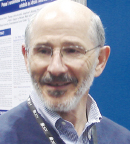
Mark R. Green, MD
Dr. Green is widely recognized for his early investigations of induction chemotherapy and treatment of lung cancer as a systemic disease. These investigations led to the identification of induction chemotherapy followed by radiation as superior to radiotherapy alone for patients with locoregionally advanced unresectable non–small cell lung cancer (NSCLC).
“Dr. Mark Green was one of the most influential lung cancer medical oncologists in the past 50 years. He had a command of the oncologic literature that was second to none. He was one of the few doctors I have known who was not only able to quote chapter and verse about the latest cancer research, but he was also able to synthesize it for your particular patient—a marvelous combination and one that is rare in medicine,” commented long-time colleague Gerard A. Silvestri, MD, MS, FCCP, Hillenbrand Professor of Thoracic Oncology at the Medical University of South Carolina.
Dr. Green served as a mentor for several investigators who are active in lung cancer research today. Colleague Ramaswamy Govindan, MD, recalled Dr. Green. “He was truly a great role model for me. To this day, I am inspired by his encyclopedic knowledge, sharp wit, vision, passion for excellence, and kindness toward others. The oncology community has lost an invaluable leader.”
Another colleague, Rogerio Lilenbaum, MD, remarked: “Mark Green was the consummate researcher—passionate, inquisitive, analytic, and unrelenting in the pursuit of excellence. Mark inspired an entire generation of clinical researchers, and his premature departure leaves a vacuum in the hearts of everyone he has touched. He will be remembered as one of the greats—a true mentor and a mensch.”
Mary Pazdur, RN, MSN
July 23, 1952–November 24, 2015
Oncology nurse practitioner Mary Pazdur, RN, MSN, spent her professional life bettering the clinical care and outcomes of cancer patients, culminating in her career at the National Cancer Institute (NCI), in the Laboratory of Tumor Immunology and Biology, working with patients on cancer vaccine protocols. Ms. Pazdur died on November 24, 2015. The cause of death was ovarian cancer.
Ms. Pazdur’s life and work in the oncology community had a distinctive history—for 33 years she was married to Richard Pazdur, MD, Director of the Office of Hematology and Oncology Products at the U.S. Food and Drug Administration (FDA). And for more than 3 decades, Ms. Pazdur was intimately involved in some of the most exciting clinical and political advances in oncology.
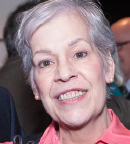
Mary Pazdur, RN, MSN
Dr. Pazdur recounted his initial encounter with the oncology nurse who would become his wife. “I always joke that our first date was over a bottle of Adriamycin in the exam room, which sounds somewhat peculiar, but that was the truth,” said Dr. Pazdur.
According to Dr. Pazdur, it was the common experience of oncology that helped forge their bond. “I look back to all of those early patients who were treated by Mary, myself, and the people at Rush-Presbyterian St. Luke’s Medical Center, and it really was a special time in our lives.”
Ms. Pazdur’s colleagues at MD Anderson recalled her special humanistic and clinical traits that were emblematic of her career. Colleague Ellen V. Sigal, PhD, Chairperson and Founder of Friends of Cancer Research, described Ms. Pazdur’s passing as “a profound loss of an extraordinary woman who devoted her life to helping others. She will be deeply missed.”
Waun Ki Hong, MD, Head of MD Anderson’s Division of Cancer Medicine, noted that he had the tremendous privilege and honor to work with Ms. Pazdur side by side. “I must say that she was one of the best advanced nurse practitioners I have ever worked with in my almost 40 years in oncology practice. She was a totally dedicated nurse who always worked for the best interest of her patients. She was extremely compassionate, and her communication skills between physician and patient were absolutely outstanding—I can’t think of anyone with better communication skills. She will be sorely missed, not only by physicians but by patients as well,” said Dr. Hong in an interview with The ASCO Post.
On Ms. Pazdur’s passing, colleagues across the country paid tribute to her as a special person among many special people. Following MD Anderson, in 2000, she joined NCI as an advanced practice nurse.
One of her many associates at the NCI, Sandra A. Mitchell, PhD, CRNP, FAAN, Research Scientist, Outcomes Research Branch, remarked, “Mary was a pioneering leader of the oncology nurse practitioner role at cancer centers around the country and at the NCI. Through her expertise, compassion, and continuous striving for optimal patient outcomes, Mary transformed the interprofessional team at NCI, establishing the nurse practitioner role as an essential component in the delivery of patient-centered care. The many patients and families she served during her distinguished career benefited tremendously from her clinical acumen. She also had an exceptional ability to engage patients and to skillfully incorporate their preferences and values into the plan of care.”
Richard ‘Buz’ Cooper, MD
September 23, 1936–January 15, 2016
Richard ‘Buz’ Cooper, MD, a preeminent voice on disparities of care and our imminent shortfall of physicians, died on January 15, 2016, from pancreatic cancer. He was 79. Dr. Cooper was an oncologist-hematologist for more than 50 years and through that journey, he rediscovered the essential role of professionalism in health care and the central importance of poverty in the growth of health-care spending, a subject that largely informed the last stage of his career.
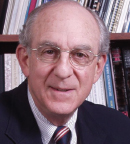
Richard ‘Buz’ Cooper, MD
Until shortly before his death, Dr. Cooper was Director of the Center for the Future of the Healthcare Workforce and Senior Fellow in the Leonard Davis Institute of Health Economics at the University of Pennsylvania. He shared an Upper East Side apartment with his wife, Barrie R. Cassileth, MS, PhD, the former Laurance S. Rockefeller Chair in Integrative Medicine at Memorial Sloan Kettering Cancer Center.
Dr. Cooper believed in the calling of medicine as a central force to heal and assuage suffering. He proved analytically that this nation needs more doctors, not fewer, if we want to deliver high-quality cost-effective medical care as our aging population grows.
His firmest message was that poverty was the main driver of health-care costs. And he made that very clear in his soon-to-be published book titled Poverty and the Myths of Health Care Reform (Johns Hopkins University Press)—a must read for doctors and policy makers who believe, as Dr. Cooper did, that we cannot separate medicine from social justice.
Ellen Stovall
December 2, 1946–January 5, 2016
Ellen Stovall, a nationally regarded cancer advocate whose tireless work helped drive the survivorship movement that focused on adapting to life with, through, and beyond cancer, rather than treating a diagnosis as a death sentence, died on January 5, 2016, at the age of 69.
After her final treatments, Ms. Stovall founded a support group for young cancer survivors. The uncertainty of survivorship spurred her into further single-minded action. She beat the pavement, seeking donations to support the Leukemia & Lymphoma Society, and became a full-time volunteer at the American Cancer Society. She attributed her resolve to make a difference, in part, to the mortality issue all survivors share. “I didn’t know how long I’d be around, but I knew this is how I wanted to spend my time,” she related during an interview.
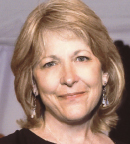
Ellen Stovall
It was during her second cancer recurrence that Ms. Stovall discovered the National Coalition for Cancer Survivorship (NCCS), and in 1988, she was elected to the Coalition’s Board of Directors. In 1992, NCCS moved its headquarters to Washington, DC, and it was that same year that Ms. Stovall became its President and CEO, positions she held until 2008. From there, she served NCCS as its senior health policy advisor.
Her relentless and impassioned advocacy reached from small cancer support groups to Capitol Hill. She served on several advisory panels, working groups, and committees of the National Cancer Institute (NCI), American Association for Cancer Research, and ASCO. Ms. Stovall also served a 6-year term on the NCI’s National Cancer Advisory Board, an appointment she received in 1992 from President Bill Clinton.
Heartfelt tributes are but a small fraction of the outpouring of sadness at Ms. Stovall’s passing. But more important, each one shares a common thread—the unbreakable spirit of Ms. Stovall’s energy connects them. And her own words, simple and straightforward, say it best: “I live my life and take pleasure in the littlest things. Cancer has taught me humility, and if there’s anything I’ve learned, it’s about not sweating the small stuff.”
Gianni Bonadonna, MD
July 28, 1934–September 7, 2015
Gianni Bonadonna, MD, was considered the “Father of Italian Oncology,” but his scientific contributions to the field and his generous collegial spirit extended far beyond the shores of his native land. Dr. Bonadonna was at the forefront in the battle to convince the surgical establishment that adjuvant therapy could significantly improve clinical outcomes. He was a scientist’s scientist. He was also a patient’s doctor, having this message for the younger generation of oncologists: “Don’t get too caught up in the deluge of data and statistics. It is time to reconnect with the patient.” Dr. Bonadonna died on September 7, 2015. He was 81.
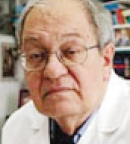
Gianni Bonadonna, MD
Dr. Bonadonna’s work ethic and intellect were renowned, as was his zest for life. Past ASCO President Gabriel N. Hortobagyi, MD, FACP, told The ASCO Post: “Dr. Gianni Bonadonna was one of the world’s most influential cancer researchers, and his work has improved the lives of countless people living with cancer. In addition to being a wonderful physician, clinical investigator, and clinical trialist, Gianni was an avid traveler, a well-known author, and a passionate oncologist, a pioneer with endless curiosity and willingness to take risks. I will always remember him as a warm and loyal friend, with whom I spent many hours of intense discussions about medicine, life, and philosophy. I will miss him dearly.”
In 2007, as a tribute to his contributions to the field of breast cancer research, ASCO instituted the Gianni Bonadonna Breast Cancer Award and Lecture, which is presented annually to a researcher of merit in this discipline. (See page 21 for this year's recipient.)
Dr. Bonadonna authored more than 550 publications in the clinical oncology field, several books on medicine for lay people, and even one book on the Sepoy Rebellion in India. His awards for meritorious service in the field of oncology are too numerous to list. But it was not elegant words on paper or glowing rhetoric that defined Dr. Bonadonna’s legacy. It is the countless thousands of cancer patients whose lives were uplifted by his work and discoveries. And the colleagues he’s left behind.
Carolyn Kaelin, MD
April 4, 1961–July 28, 2015
Carolyn Mary Kaelin, MD, MPH, FACS, died on July 28, 2015, at the age of 54. A gifted and compassionate breast cancer surgeon, Dr. Kaelin was a surgical oncologist in the Women’s Cancers Program at Dana-Farber Cancer Center and Director of the Breast Clinic at Brigham and Women’s Hospital.
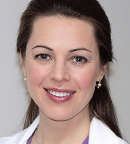
Carolyn Kaelin, MD
Dr. Kaelin graduated from Smith College and Johns Hopkins School of Medicine. She earned her master’s degree from the Harvard School of Public Health. At 34, she became the Founding Director of the Comprehensive Breast Health Center at Brigham and Women’s, at that time the youngest woman to hold a position of that distinction at a major Harvard teaching hospital. She quickly established herself as one of the nation’s premier breast cancer surgeons. Also active in research, Dr. Kaelin focused on how doctors and patients make medical decisions and on quality-of-life issues for breast cancer survivors, particularly the role of exercise. In 2001, Newsweek featured her as 1 of 15 “Women of the New Century.”
Dr. Kaelin rode repeatedly in the Pan-Mass Challenge, a 192-mile bicycle ride fundraiser for Dana-Farber. Shortly after a training ride in 2003, she noticed early signs of her own breast cancer.
A rare complication of breast cancer therapy prevented Dr. Kaelin from returning to clinical practice. Instead, she redoubled her patient education and survivorship efforts, with an emphasis on the underserved.
Dr. Kaelin initiated research on the value of rowing for patients with postoperative lymphedema, with an assist from Olympian Holly Metcalf. She coauthored two award-winning books, Living Through Breast Cancer and The Breast Cancer Survivor’s Fitness Plan, and helped create an innovative, exercise-centered breast cancer recovery program for the YMCA.
She also established the Quality of Life Fund at Brigham and Women’s to support breast cancer survivorship projects and launched the successful Knowledge, Strength, and Grace conference series for breast cancer patients and their families. In Aspen, Colorado, she cofounded the Quality of Life Cancer Fund along with Barbara Berger.
In 2010, Dr. Kaelin was diagnosed with brain cancer unrelated to her previous breast cancer. She had two brain surgeries and was a trailblazer on clinical trials testing medical treatments for brain cancer.
“We will miss her warmth, energy, intelligence, compassion, and humor,” said Eric Winer, MD, Director of the Breast Oncology Center in the Susan F. Smith Center. “She was uncompromising in her pursuit of truly outstanding care for each and every patient.”
Dr. Kaelin is survived by her husband William G. Kaelin, Jr, MD, and her children, Kathryn Grace and William (Tripp).
Thomas A. Stamey, MD
April 26, 1928–September 4, 2015
Thomas A. Stamey, MD, Professor Emeritus of Urology at the Stanford University School of Medicine and a leader in the study and treatment of prostate cancer, died of Alzheimer’s disease on September 4, 2015. He was 87.
Dr. Stamey helped lay the groundwork for the prostate-specific antigen (PSA) blood test for prostate cancer and helped transform the scope of research in urology and surgery. In 1989, he became the first urologist ever elected to the Institute of Medicine and was also named an honorary fellow of the Royal College of Surgeons Edinburgh.
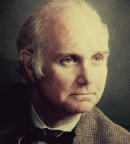
Thomas A. Stamey, MD
“Tom Stamey was the founding father of the Stanford Department of Urology and led it for more than 25 years. He was truly one of the giants in academic urology, with his biggest impact in the area of prostate cancer,” said Eila Skinner, MD, present Chair of Urology at Stanford and the Thomas A. Stamey Research Professor in Urology at the Stanford University School of Medicine. “His research collaborations…formed the basis of much of what we know about prostate cancer today. He trained over 100 residents and fellows, many of whom went on to be leaders in urology in their own right. His influence on the department will go on for many years to come, and I feel privileged to have known him.”
Dr. Stamey earned his medical degree from Johns Hopkins University, where he also completed his internship and a residency. He was appointed Associate Professor of Surgery and Chair of the Division of Urology at Stanford Medical School in 1961. In 1990, he was appointed Founding Chair of the newly created Department of Urology and worked to develop it into one of the top programs in the nation.
He was an expert in PSA testing for over 15 years. In the late 1980s, he pioneered the development of the PSA blood test for prostate cancer, which allowed physicians to estimate the risk that a male patient had the disease. In 2004, he published a study showing that the PSA test predicted the size of the patient’s prostate but not necessarily the severity of cance.
Norman Breslow, PhD
February 21, 1941–December 9, 2015
Norman Breslow, PhD, Professor Emeritus in the Department of Biostatistics at the University of Washington, died of prostate cancer on December 9, 2015, at the age of 74.
Dr. Breslow graduated from Berkeley High School and went to Reed College, Portland, Oregon, where he graduated with a BA in Mathematics. In 1961, he entered Stanford University, California, where he received a PhD in statistics in 1967. That same year, Dr. Breslow joined the University of Washington, where he quickly rose through the ranks, becoming Chairman of the Biostatistical Department in 1983, a position he served for 10 years.
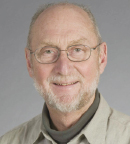
Norman Breslow, PhD
Inspired by his father’s career, Dr. Breslow used the application of biostatistics to inform the analysis of epidemiologic data, and since the early 1970s, Dr. Breslow made enormous contributions to statistical theory and its applications in cancer epidemiology. In fact, much of what is now known about the causes and risk factors for cancer and other diseases was derived, in part, using his formulas. Moreover, the math Dr. Breslow perfected and formalized was the basis for what are now standard methods to filter out stray factors in “case-controlled” health studies. Although he became deeply involved in a range of biomedical applications, he remained focused throughout his career on the development of the core statistical discipline.
Dr. Breslow’s many honors include the Spiegelman Gold Medal from the American Public Health Association, the Marvin Zelen Leadership award in Statistical Science from Harvard University, the Snedecor and R.A. Fisher awards from the Council of Presidents of Statistical Societies, and the Medal of Honor from the International Agency for Research on Cancer. He also had the singular distinction of simultaneous membership in the American Association for the Advancement of Science with his late father. ■

